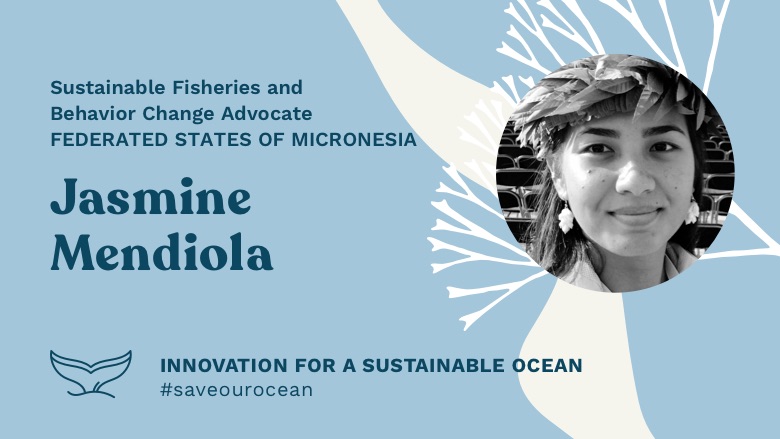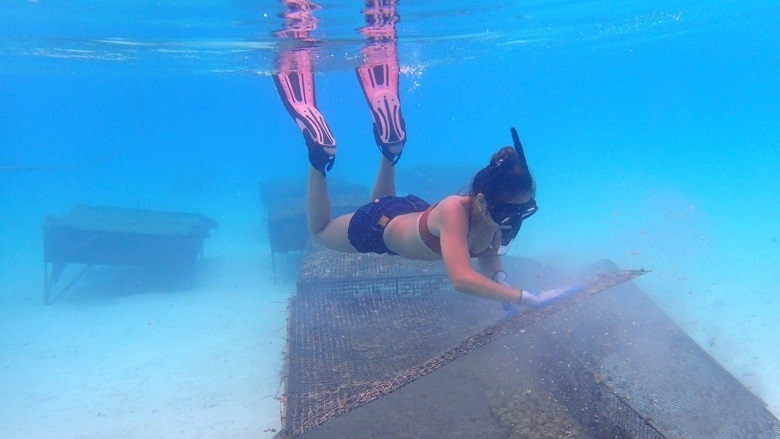Tell us about yourself
I am a proud Micronesian descendent. My father, Francisco Weilbacher Mendiola, is half Kosraean, half Chamorro; and my late mother, Emirose Anson Elanzo, was half Marshallese, half Pohnpeian. So I’m a mix of a several Micronesian islands, but was born and raised in Pohnpei. I have four siblings, I’m married with an 11-year-old daughter.
My interest in the ocean has always been a part of me. I grew up spending a good portion of my life in the ocean, and on a small atoll called Black Coral or Kehpara which used to be the largest grouper spawning aggregation site in the Indo-Pacific region. This was my first marine biology class – snorkeling and observing all the biodiversity thrive freely all around me. It may have been a hobby back then, I only realized it would be my fate in college when I took marine science courses. I enjoyed it so much, especially the field work, that it didn’t feel like ‘school’. So I chose marine science as my major at the College of Micronesia and have stayed on it since then.
Can you tell us about your work? How does your work help to promote and maintain oceans health? What is innovative about it?
After I graduated I finally found my place at the Marine and Environmental Institute of Pohnpei (MERIP), a local NGO that promotes livelihoods of community members through research and sustainable aquaculture.
After over five years of tremendous growth at MERIP I decided to take on a challenge with an offer I received from an organization called Rare. I am currently working there as the Senior Program Implementation Manager for Micronesia, focusing on implementing a project called Fish Forever – establishing sustainable fisheries through behavior change.
Fish Forever is an effort to promote an ecosystem-based management approach where essentially, we empower networks of communities to take the lead in managing their inshore fisheries. This approach is, to my understanding, the first of its kind in Micronesia where the strategies are centered around behavioral change and creating enabling conditions to help push this behavior change.
Are you involved in other conservation work?
I did and still continue to do a lot of education and awareness in areas like marine conservation, fisheries management, climate change and love being an environmental steward. I have represented my country in other places in the world in capacity and leadership building. I volunteer a lot of my time and energy in helping build a more sustainable and resilient community by supporting other youths in their efforts.
I’ve always focused my time and energy on doing things that matter, and I’ve found that I am most effective in achieving that with what I have been doing and continue to do – building a better environment, better home, better life for my people, through leading by example.




